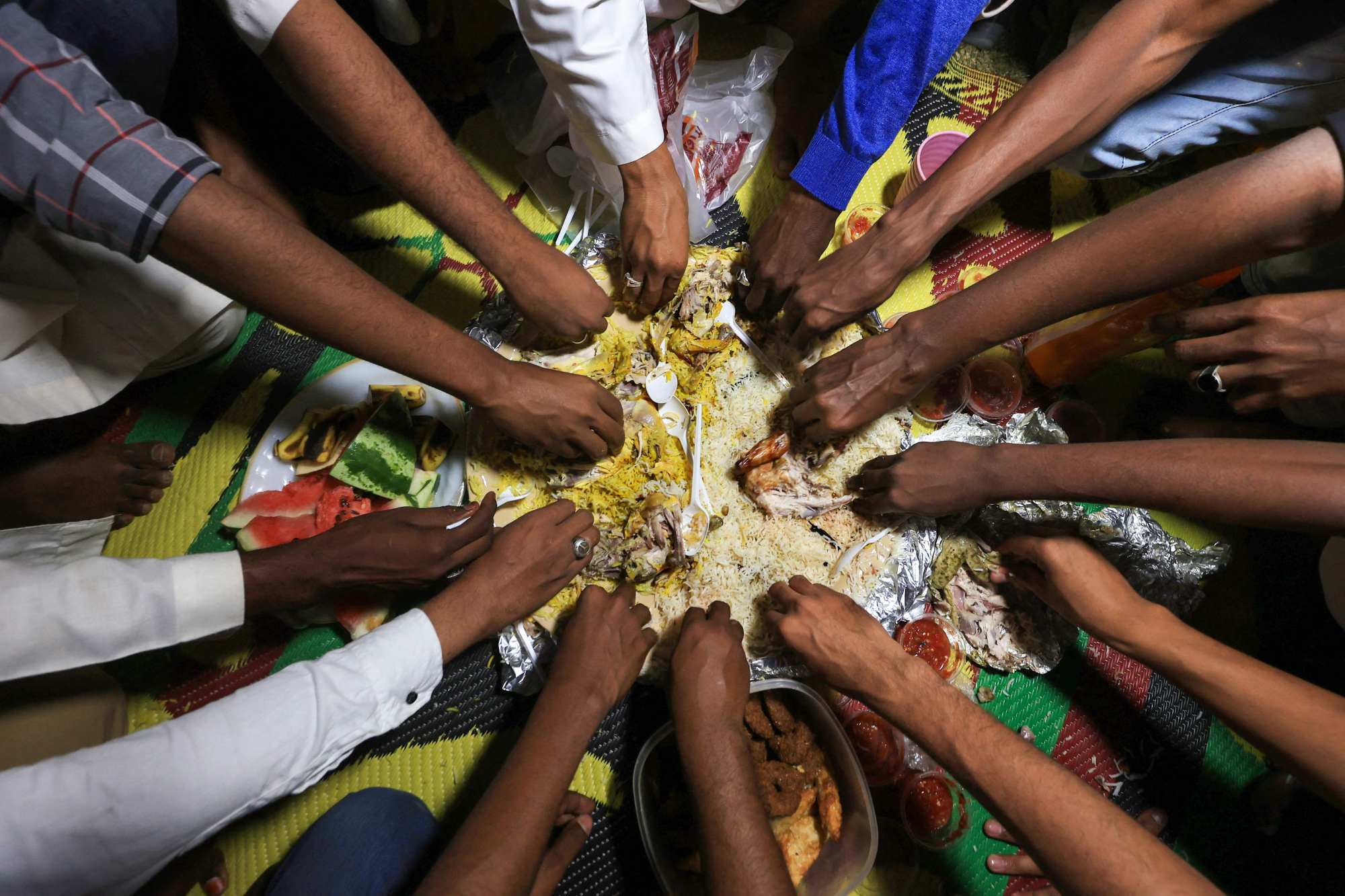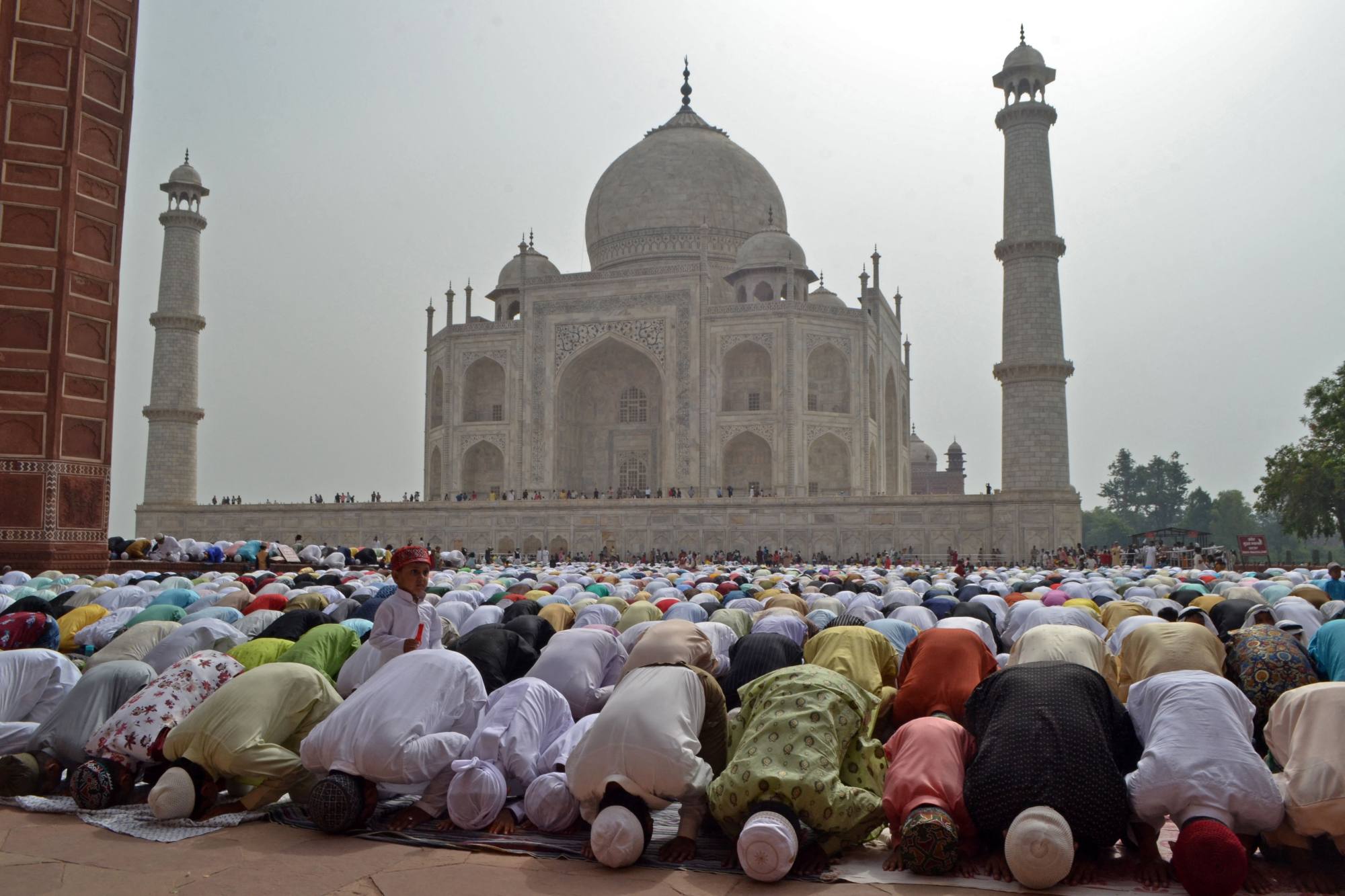
Fast facts: a Ramadan lexicon – the roots of iftar and suhoor, the breaking of the fast and the meal before fasting, and how to greet those who fast
- A quarter of the world’s population is observing Ramadan, the Islamic month of fasting and prayer. Where do the words associated with it originate?
- Iftar, the breaking of the fast, derives from the Arabic for breakfast, while suhoor, the predawn meal before fasting, has the same root as the Arabic for dawn
One in four people worldwide are currently observing Ramadan, the holy ninth month of the Islamic calendar, a period of fasting, prayer and reflection.
In English, to fast means to abstain from all or some kinds of food or drink, for various reasons, as an act of religious devotion or discipline, a form of protest, for medical reasons or as part of a diet.
Its roots lie in Germanic (there are cognate words in other Germanic languages, such as the German vasten, Swedish fasta), and verb and noun were likely borrowed from early Scandinavian.
The original sense of the Germanic verb was probably “to keep, observe”, developing to “to observe a religious rite”, then specifically “to observe a fast, to fast”.
Malaysia marks Ramadan with ‘air-filled curry puffs’ to break the fast
The corresponding word in Arabic is ṣawm, “to refrain” (originally “to be at rest”), most commonly understood as any religious fasting, one of the five pillars of Islam – but is in particular the obligation to fast between dawn and dusk during Ramadan.
Likely borrowed from the Classical Syriac ṣawmāʾ, ṣawm, in fact, encompasses more broadly the obligation to refrain from food, drink, sexual activity and all forms of immoral behaviour. Such abstinence helps achieve greater taqwa – consciousness of God.

In the mid-15th century, breakfast was formed from the verb “break” + the noun “fast”, for the first meal of the day.
In Arabic, the general word for breakfast is futur. Related to this, with the same root letters (“fa”, “ta”, and “r”), is the more well-known word iftar, specifically the breaking of the fast after sunset during Ramadan.
This Arabic word, borrowed via the Ottoman Turkish ifṭār, entered English in the early 19th century.
Conversely, the meal eaten before dawn during Ramadan, before fasting begins, and the occasion of such a meal, is known as saḥūr “of the dawn” – this has the same root as the word for “dawn”, saḥar.
British orientalist and lexicographer E.W. Lane, writing in 1836 about the customs of modern Egyptians, noted how, “Some persons eat but little for their fatoo’r [meal after sunset], and make the sahhoo’r the principal meal.” Thus did the word enter English as suhoor.

To those who mark this observance, we wish Ramadan Mubarak or Ramadan Kareem – Arabic for blessed or generous Ramadan, or Selamat Berbuka Puasa – Malay/ Indonesian wishes for breaking the fast.
And with the sighting of the next crescent moon on Friday, for Eid ul-Fitr “festival of breaking the fast”, we say: Eid Mubarak! Selamat Hari Raya Idul Fitri!

